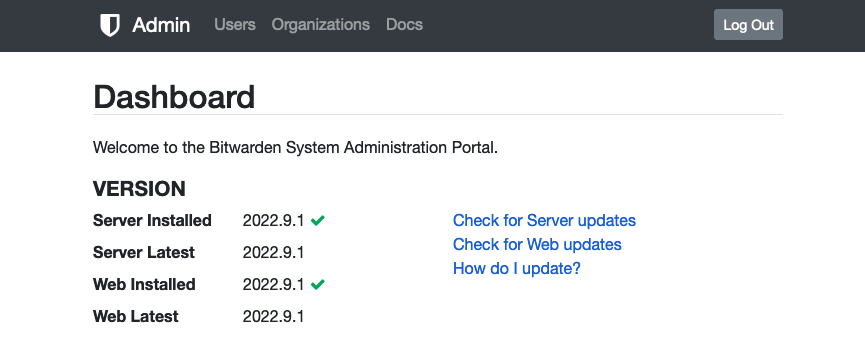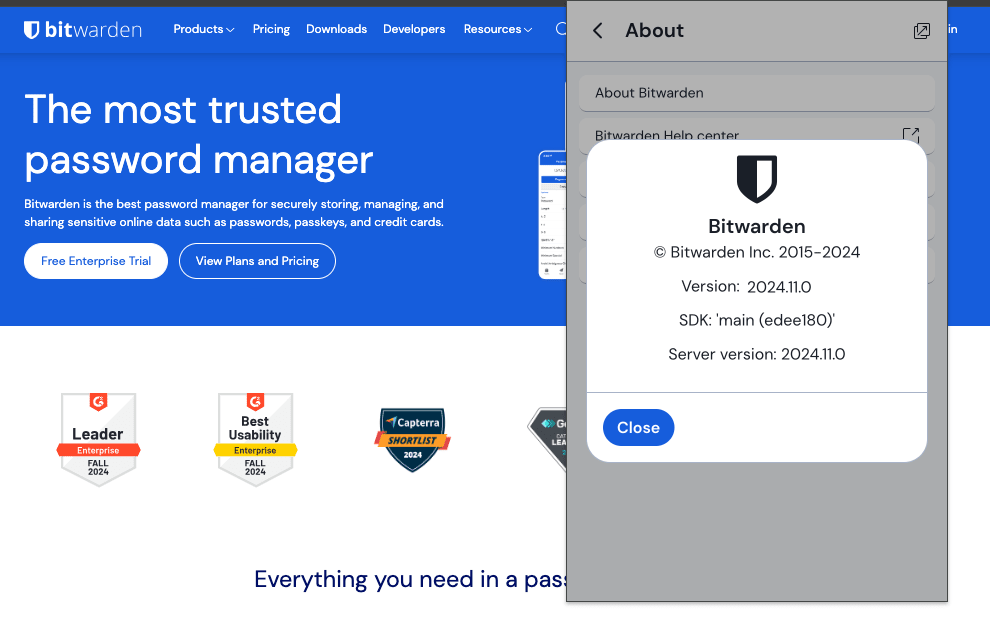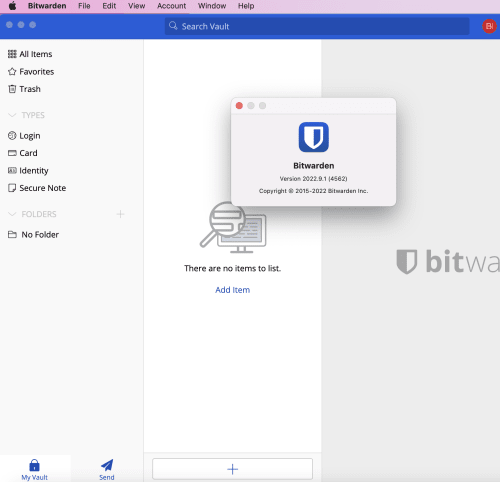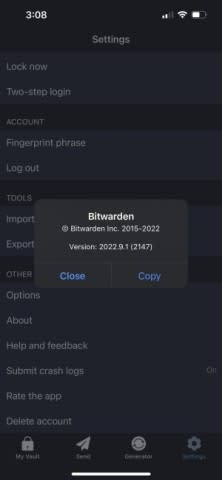Versioning
Currently Bitwarden clients and server use a yyyy.mm.r convention, indicating, for example, that 2022.5.0 is the base release (.0) of May (.5.) 2022 (2022.). If subsequent hotfixes are released, for example, they would be 2022.5.1, 2022.5.2, and so on.
Initial monthly releases (those ending in .0) are shared across all clients and server, but clients and server may deviate as some get hotfixes (.1s, .2s, and so on) while others don't.
This hasn't always been the case, though. Prior to May 2022, clients and server each had different versioning systems. If you're using a client or server with a version 1.xx.x or 2.xx.x, you're using an old version.
note
When Bitwarden drops support of a version, the entire release and all previous versions will also no longer be supported.
To find your self-hosted server's version, log in to the System Administrator Portal. Server and Web versions will be listed on the dashboard. If the Installed versions don't match the Latest versions, update your server:

You can also check the bitwarden.sh/bitwarden.ps1 file to see which versions are installed. Running updateself will update these if newer versions are available, and running update will update Bitwarden containers based on what's listed in the .sh/.ps1 file.
To get a client application's version:
Navigate to the Settings tab and select About → About Bitwarden:

On Windows, select Help About Bitwarden. On macOS, select Bitwarden About Bitwarden:

Navigate to the Settings tab and select the About option:

To print the current version to the console run the following command:
Bashbw -vSuggest changes to this page
How can we improve this page for you?
For technical, billing, and product questions, please contact support